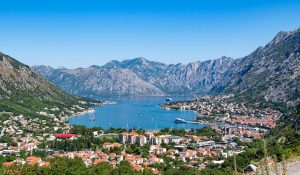
The Balkan Peninsula is as of a unique region as you may think. It is the best that Eastern Europe has to offer in terms of places to visit, friendly behaviour, and more. However, this region is often overlooked by people who are looking to visit the more popular tourist destinations across Europe and the world.
With that being said, we wanted to list a few reasons why you should put the Balkans on your checklist and visit the countries located in this region. We promise that you will have the most unique and entertaining experience, so without any further ado, let’s start diving into the details.
Friendly People and Tasty Dishes
First of all, all Balkan countries are known for their hospitality. Whichever country you decide to visit, you will be welcomed warmly and you will be pleased to hear that the people here are extremely friendly. They will treat you like you’re their family member and will answer all questions if you have any.
Not only that, but you will be pleased to know that the region has plenty of unique and tasty dishes. The Balkans is known for its unique cuisine, which is shared by many of the countries. Some culinary delights that you are ought to try are sarma, moussaka, ajvar, kebab, stuffed peppers, pleskavica, shopska salad, and most importantly – bread. Balkan people are obsessed with bread and their bakeries make the most delicious bread that you will ever taste.
Find the time to try all of them as we promise you that they are unlike anything you’ve ever tasted in your life and you will be surprised as to how good they are.
The Balkans is Cheap
Next up, when you visit many of the world’s most popular tourist destinations, especially those that are located in Europe, you will be surprised to know that they are pretty expensive. Take Paris and Barcelona as an example. Since they are among the most visited cities in the world, everyday expenses and accommodation can cost a fortune.
That is not the case with the Balkan. All of the countries are relatively cheap here. That includes food and beverage, public transportation and accommodation. Yes, it’s a given that Croatia and Slovenia might be a bit more expensive than the rest of the countries in the region, but compared to the rest of Europe, the Balkans is literally a financial haven for those who are looking to travel on a budget.
Plenty of Places to Visit
Apart from the fact that the cheap nature of the Balkans is of massive importance to your wallet, that also allows you to visit many of the region’s best destinations. And trust us when we say this – there are plenty of them that you should consider.
Let’s start with Slovenia. Lake Bled, Ljubljana Piran, Maribor, Kranjska Gora and Triglav National Park are just a few honourable mentions. Croatia is known for its lucrative shoreside that includes many great cities such as Porec and Dubrovnik. But you will also be pleased to know that there are many other fantastic places to visit here, including Plitvice National Park, the country’s capital, Zagreb, Split, Zadar and Rovinj.
Moving down to the south, we have Bosnia and Herzegovina. Some of the must-visit places here are Sarajevo, Mostar, the Battle of Sutjeska monument, Jajce and Una National Park. Montenegro includes various beauties such as Herceg Novi, Kotor, Podgorica and Budva, which is one of the most popular tourist destinations for young people.
Serbia includes tons of attractions including Kalemegdan and the St. Sava church, which are located in the capital, Belgrade. Then, we have House on the Drina, the Studenica monastery, Skull Tower, Devil’s Town Varos and Uvac Canyon.
The final country on the map is North Macedonia, a small nation, yet full of wonders. It hides massive attractions as Ohrid and Ohrid Lake, Matka Canyon, Krusevo, the ancient cities of Heraclea and Scupi, Prespa Lake, Mavrovo, Galicica, Sar Planina, as well as the capital of the country – Skopje.
Unique Culture
The culture in the Balkans is quite unique and unlike anything you’ve ever come across. People here are just looking for an excuse to celebrate for stuff and go out. They mostly do that in their so-called “kafani” where we must warn you that you shouldn’t get too confident with the most popular beverage in the region – rakija.
These restaurants are definitely places that you should visit as they are a true embodiment of the culture in the Balkan Peninsula.
Final Thoughts
As you can see, the Balkan is packed with wonders that are just waiting to be unravelled by you. Regardless of whether you are planning to visit this place during the summer or winter, you will not fall short as there are countless places to visit and things to do. The best part about it is that the whole trip will be extremely budget-friendly.

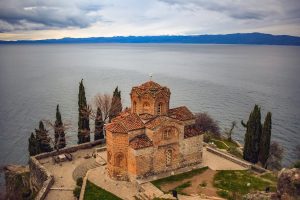
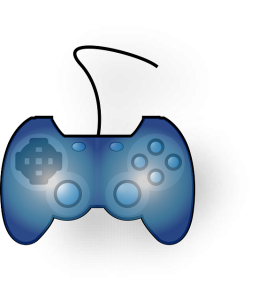 When most Englishmen, or Westerners in general, are talking about the Balkans, they usually imagine small country-states not unlike North Korea – no access to technology, culture stuck in the 80s, people are poor and miserable, no food, etc. While Slovakia technically isn’t part of the Balkans, I do believe that the scene where
When most Englishmen, or Westerners in general, are talking about the Balkans, they usually imagine small country-states not unlike North Korea – no access to technology, culture stuck in the 80s, people are poor and miserable, no food, etc. While Slovakia technically isn’t part of the Balkans, I do believe that the scene where 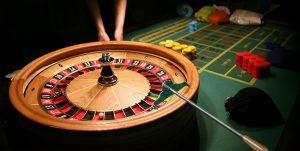 I cherished the time spent with the kids. A couple of months ago, I was talking to my son – he’s exploring Asia the way I did with the Balkans back in the 90s. I told him I missed our playing roulette. I said we should get together and play some soon, realising how unlikely to happen that was. But he surprised me by reminding me there’re cool online casinos – “We’ll all sign up, pick a table and a time to play and we’ll meet online. It’ll be like the old times.”
I cherished the time spent with the kids. A couple of months ago, I was talking to my son – he’s exploring Asia the way I did with the Balkans back in the 90s. I told him I missed our playing roulette. I said we should get together and play some soon, realising how unlikely to happen that was. But he surprised me by reminding me there’re cool online casinos – “We’ll all sign up, pick a table and a time to play and we’ll meet online. It’ll be like the old times.”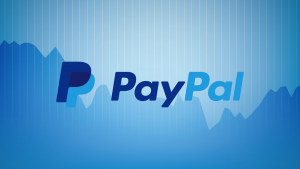 In the US and Western Europe, e-wallet service
In the US and Western Europe, e-wallet service 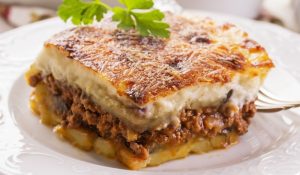 They pride on their ethnic cuisine and they’d probably think I’m picking a quarrel if they heard me say that they have a dish that’s common for them all but, truth be told, they do – it’s called moussaka. Well, I can’t guarantee all Balkan states have it but most of them surely have their own version of moussaka.
They pride on their ethnic cuisine and they’d probably think I’m picking a quarrel if they heard me say that they have a dish that’s common for them all but, truth be told, they do – it’s called moussaka. Well, I can’t guarantee all Balkan states have it but most of them surely have their own version of moussaka.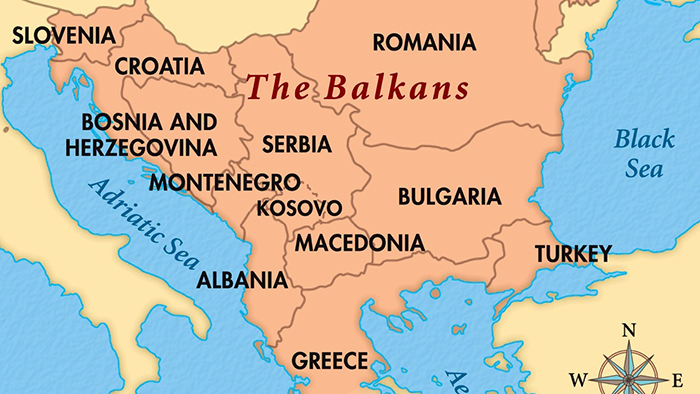 If you don’t know someone and are quick to label them negatively, are they to blame? Certainly not. Actually, if there is any fault in this situation, it should most probably lie with the one that’s reluctant to come to know the other, yet quick to judge them. If all this sounds like a bunch of gibberish to you, let me give you an example.
If you don’t know someone and are quick to label them negatively, are they to blame? Certainly not. Actually, if there is any fault in this situation, it should most probably lie with the one that’s reluctant to come to know the other, yet quick to judge them. If all this sounds like a bunch of gibberish to you, let me give you an example.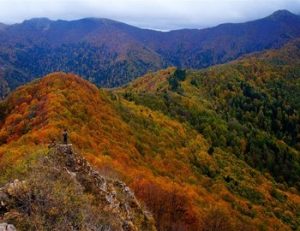 Though the Balkans are more of a cultural and political concept, they cover a physical territory on the Balkan peninsula and as such can be analyzed from a geographical perspective. The Balkans are a diverse mix of mountains and forests, rivers and lakes, wide valleys and hilly grasslands, flat or rolling countryside. Actually, did you know that the name Balkans comes from the Balkan Mountains, which are a 560 km mountain range that starts in Serbia and sprawls towards the Bulgarian Black Sea coast?
Though the Balkans are more of a cultural and political concept, they cover a physical territory on the Balkan peninsula and as such can be analyzed from a geographical perspective. The Balkans are a diverse mix of mountains and forests, rivers and lakes, wide valleys and hilly grasslands, flat or rolling countryside. Actually, did you know that the name Balkans comes from the Balkan Mountains, which are a 560 km mountain range that starts in Serbia and sprawls towards the Bulgarian Black Sea coast?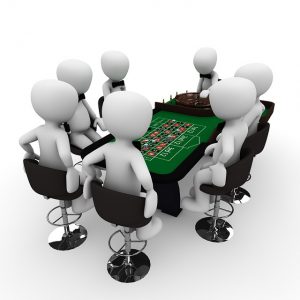 Hi, I’m Paul. I’m your real-life Englishman in New York. Except that it’s not New York but the Balkans. You’ve probably heard the name but can you honestly say you know what it stands for? Mostly imagined as a place of political conflict, the Balkans are some kind of a mystery to many Brits.
Hi, I’m Paul. I’m your real-life Englishman in New York. Except that it’s not New York but the Balkans. You’ve probably heard the name but can you honestly say you know what it stands for? Mostly imagined as a place of political conflict, the Balkans are some kind of a mystery to many Brits.